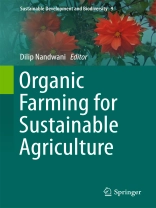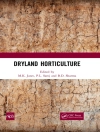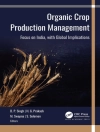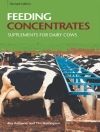Focusing on organic farming, this book presents peer-reviewed contributions from leading international academics and researchers in the field of organic agriculture, plant ecosystems, sustainable horticulture and related areas of biodiversity science. It includes case studies and reviews on organic agriculture, horticulture and pest management, use of microorganisms, composting, crop rotation, organic milk and meat production, as well as ecological issues. This unique book addresses a wide array of topics from all continents, making it a valuable reference resource for students, researchers and agriculturists who are concerned with biodiversity, agroecology and sustainable development of agricultural resources.
Table of Content
Global Trends in Organic Agriculture.- Organic Strawberry Production in Tennessee, USA and Areas of Comparable Climate in China.- Role of Plant Growth Promoting Rhizobacteria (PGPR) as Bio-fertilizers in Stabilizing Agricultural Ecosystems.- Safety, Nutrition and Health Aspects of Organic Food.- Plant-Parasitic Nematode Problems in Organic Agriculture.- Breeding for Organic and Sustainable Production.- Organic Agriculture: A Viable Option for Food Security and Livelihood Sustainability in Nepal.- The potential of silvopastoral systems for milk and meat organic production in the tropics.- Role of Legumes for and as Horticultural Crops in Sustainable Agriculture.- Principles of Vermitechnology in Sustainable Organic Farming with Special Reference to Bangladesh.- Composting, Crop Rotation, and Cover Crop Practices in Organic Vegetable Production.- Effective Micro-organisms (EM) as Sustainable Components in Organic Farming: Principles, Applications and Validity.- Season Extension in Organic Systems.- Consumer Perception of Organic Food and Product Marketing.- Sustainable Urban Agriculture: A Growing Solution to Urban Food Deserts.
About the author
The editor of this volume has edited the second volume published in SDEM, ‘Sustainable Horticultural Systems’.












